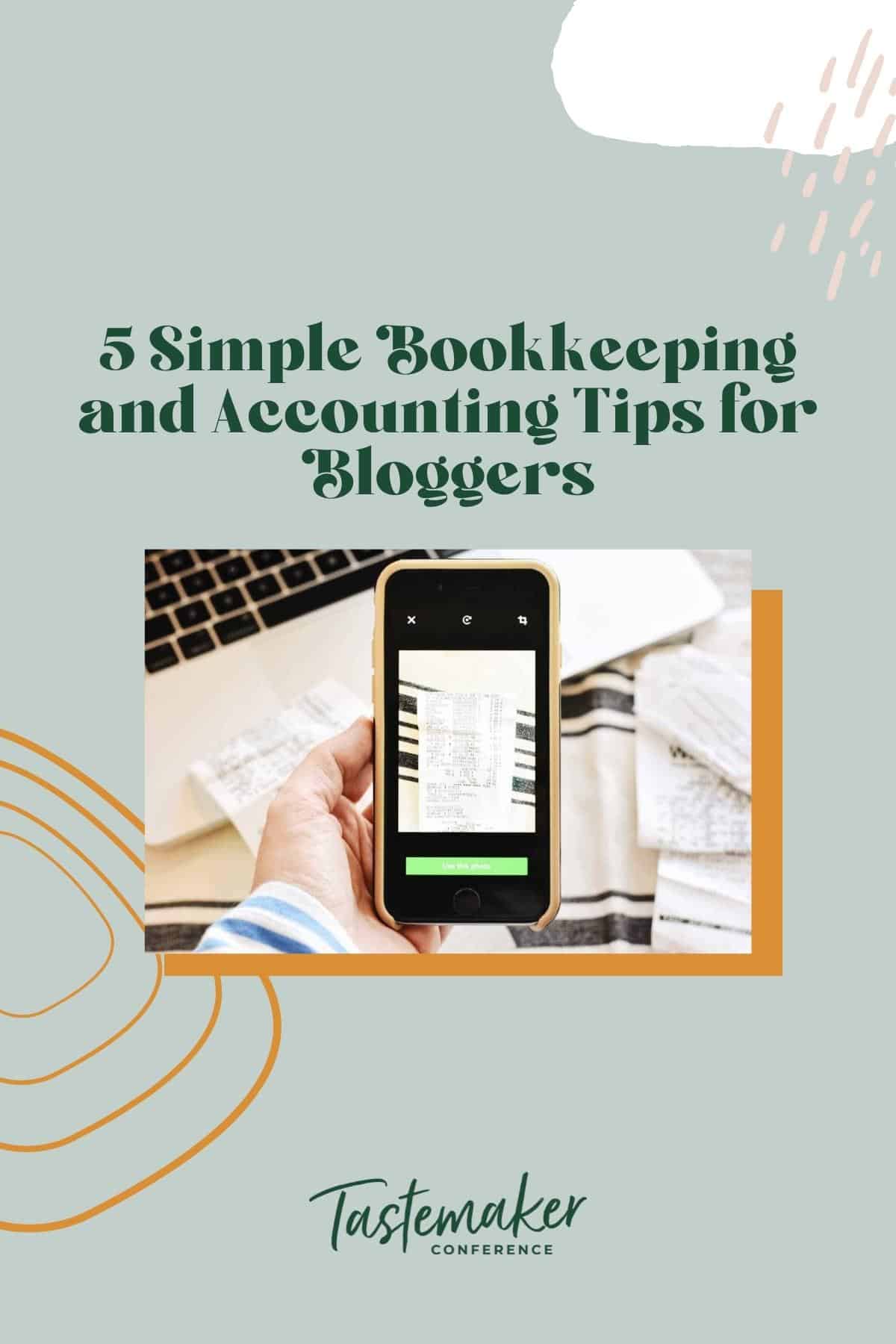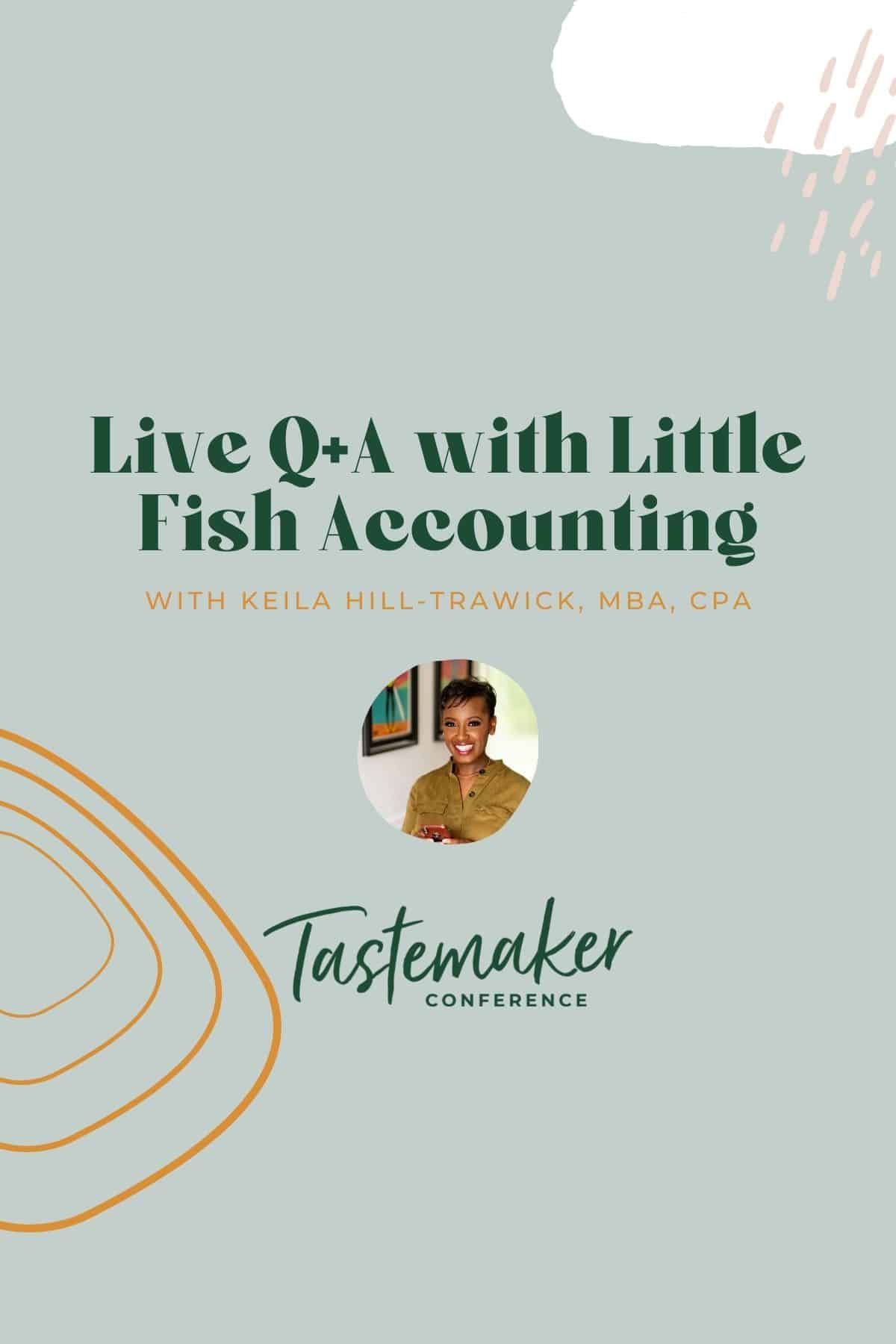As a food blogger, it is essential to take small steps each day and week for bookkeeping and organization. Today, we will provide you 5 simple tips that will help you to budget better and stay on top of your blogging game.
Importance of Bookkeeping and Accounting
Bookkeeping and accounting isn’t something most people like to do while kicking back on a Friday night. Keeping a detailed and accurate record of your day-to-day expenses can feel overwhelming, laborious, and confusing. In fact, it’s one of the most commonly mismanaged tasks of bloggers, causing stress and frustration!
But you don’t need an accounting degree (or a lot of time) to become a pro bookkeeper for your blog. Taking time to track and manage expenses over the course of the year means less of a hassle come tax season and it will also help you be able to claim every deduction you possibly can. Did you know that the average person misses nearly $500 in unclaimed deductions each year? Don’t be one of those people!
Having accounting questions that you need answered? Watch and read the Accounting Q&A with Little Fish Accounting.

Here Are Our 5 Tips
1. Open a Business Bank Account
If you don’t have a separate account for your blog, open one today! While there are many advantages to having a separate account so that you can keep your business and personal expenses separate, the most important one is that it will make taxes so much simpler. Less time stressing about taxes = more time running an awesome blog! A separate account will make bookkeeping and deductions a breeze.
2. Organize your Expenses (and Income!) into Categories
Create a spreadsheet that allows you to track your income and expenses. This will not only help you as you set up a budget for your blog, but will also help you take advantage of deductions that you shouldn’t be missing out on! Everyone will have a slightly different way of categorizing expenses.
Examples of Sections Your Spreadsheet Might Have
- Professional fees: This includes money spent on web design, photography, lawyers (for contracts), etc.
- Marketing and Advertising: This category might include expenses for Facebook or Instagram ads, ads on other websites, and mailer memberships (such as MailChimp)
- Meals/Travel: As long as it’s related to your blog, such as that business lunch you had last week, track it! You can also deduct expenses to and from an industry event – meaning, if you come to Tastemaker Conference, you can deduct the price of your travel AND the conference ticket! Score!
- Supplies: Expenses in this category might include photography props, thank you cards, and office supplies.
- Miscellaneous: This may include website hosting, Google domains, and membership dues for organizations/subscriptions/blogger networks
If spreadsheets freak you out, don’t worry! We use QuickBooks Self-Employed to link up our business bank account, credit card all in one place. It automatically separates and categorizes expenses for you. Just remember that come tax season, you can only deduct things that are used 100% for your blog.
3. Capture Expenses in the Moment
No matter how hard you work to stay on top of things throughout the day, life happens. Keeping track of every single expense is one of the first things that falls through the cracks. Don’t wait until you’re home from blog-related travel or a week after you’ve finished a project to bookkeep and organizae receipts and expenses. Make it a habit and come up with an easy way (such as downloading an app like Expensify, Shoeboxed, Wave, or Quickbooks Self-Employed) to snap photos of receipts and track your expenses as they happen. It’s worth the extra few seconds it takes!
4. Track all of your Income
The income you generate from a blog is a lot different than the paycheck you’d take home from a 9-to-5 job. Blogging income also includes compensation like affiliate commission, product your receive for reviews, trips, conference sponsorships, and free items that companies may send you. It can be easy to forget to track some of these items because they don’t necessarily show up as income in your bank account! One of the easiest ways to do this is to add another tab to your expenses spreadsheet and record everything there.
5. Plan for Tax Season
Remember that you WILL have to pay taxes. As a blogger, the IRS doesn’t take taxes out of your paycheck automatically, and it is easy to forget how much you will actually end up owing in taxes. At the end of every month, put around 30% of your net income for the month into a special account that will only be used to pay taxes. That way, you’re not put in a tight spot once tax season comes around.

Bookkeeping in Baby Steps
Bookkeeping might not be your favorite part of blogging, but spending half an hour each week can help keep it from making your life miserable. By creating categories and then inputting expenses and income as they happen, you will be able to avoid the headache and hassle of trying to sort everything out at the end of the year. Taking these small steps each day and week to stay organized will help you to budget better and stay on top of your blogging game.





